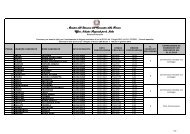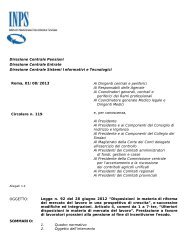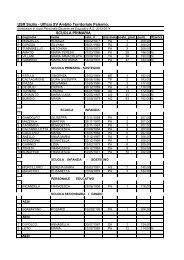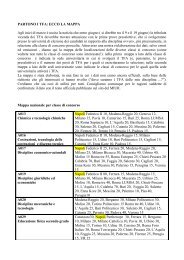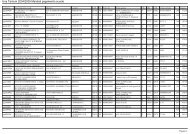Analisi - knowledge management case studies - Aetnanet
Analisi - knowledge management case studies - Aetnanet
Analisi - knowledge management case studies - Aetnanet
You also want an ePaper? Increase the reach of your titles
YUMPU automatically turns print PDFs into web optimized ePapers that Google loves.
Detailed description<br />
Abstract<br />
Multinational British Telecom plc is one of the world's leading suppliers of fixed and mobile<br />
communications services. Currently British Telecom has three target geographies - North<br />
America, Europe and Asia-Pacific - and their strategy is to work with local partners. They<br />
already have a number of key partnerships around the world and significant investment in<br />
international services. To be able to grow as a global player, they constantly need to improve<br />
their relations with customers and alliances and to improve the quality of work for its<br />
employees. To do so requires connecting people and implementing effective structures for<br />
the consolidation and distribution of <strong>knowledge</strong>. The latter are the anchors of their <strong>knowledge</strong><br />
<strong>management</strong> programme, in which BT favours establishing effective connections between<br />
people above trying to codify <strong>knowledge</strong> into systems. Their corporate intranet has proven<br />
itself and has become the backbone of new collaborative way of working. A lot of <strong>knowledge</strong><br />
<strong>management</strong> initiatives are based on the exploitation of the capability this intranet provides.<br />
For example, their corporate intranet-based directory is one of the most important parts of<br />
the <strong>knowledge</strong> <strong>management</strong> programme and BT is gradually increasing its functionality,<br />
staying closely in touch with the wishes of its users. At the moment British Telecom is<br />
evaluating its <strong>knowledge</strong> <strong>management</strong> activities, having been active in this area since 1996.<br />
Situation scanning<br />
History of BT<br />
BT was a government-owned company until its privatisation in1984. At its peak, the company<br />
employed more than 245,000 employees focused mainly on the provision of fixed telephony<br />
services in the UK market. Over 10 years ago BT implemented a major transformation<br />
programme, focusing on TQM (total quality <strong>management</strong>). Since this time, the company was<br />
seen successive waves of change, and which have become more frequent over the years.<br />
Currently it employs 125,000 people, of which 20,000 are service engineers, and has<br />
expanded its operations into mobile telephony, consultancy and outsourcing. BT offers more<br />
than 3000 separate products and services for single customers to multi-nationals. Turnover<br />
in 1998 was £15.64 billion and a total of £3.657 billion in profits. BT has been actively<br />
pursuing Knowledge Management since 1996 – 1997, with a significant focus organisational<br />
learning. BT currently operates a functional organisation structure with 40 interdependent<br />
business units.<br />
About British Telecom 3<br />
British Telecom is one of the world's leading suppliers of fixed and mobile communications<br />
services. In the UK, they support around 27 million fixed customer lines and three million<br />
mobile connections, through a 60 per cent stake in Cellnet. Their main services are local,<br />
national and international calls (with direct dialling to over 230 countries worldwide); and<br />
supplying telephone lines, equipment and private circuits for homes and businesses.<br />
3 Data of 1998 (Steve Lakin, BT)<br />
CIBIT 18<br />
analisi-KM <strong>case</strong> <strong>studies</strong>.doc - 25/5/99




